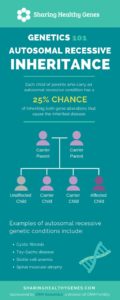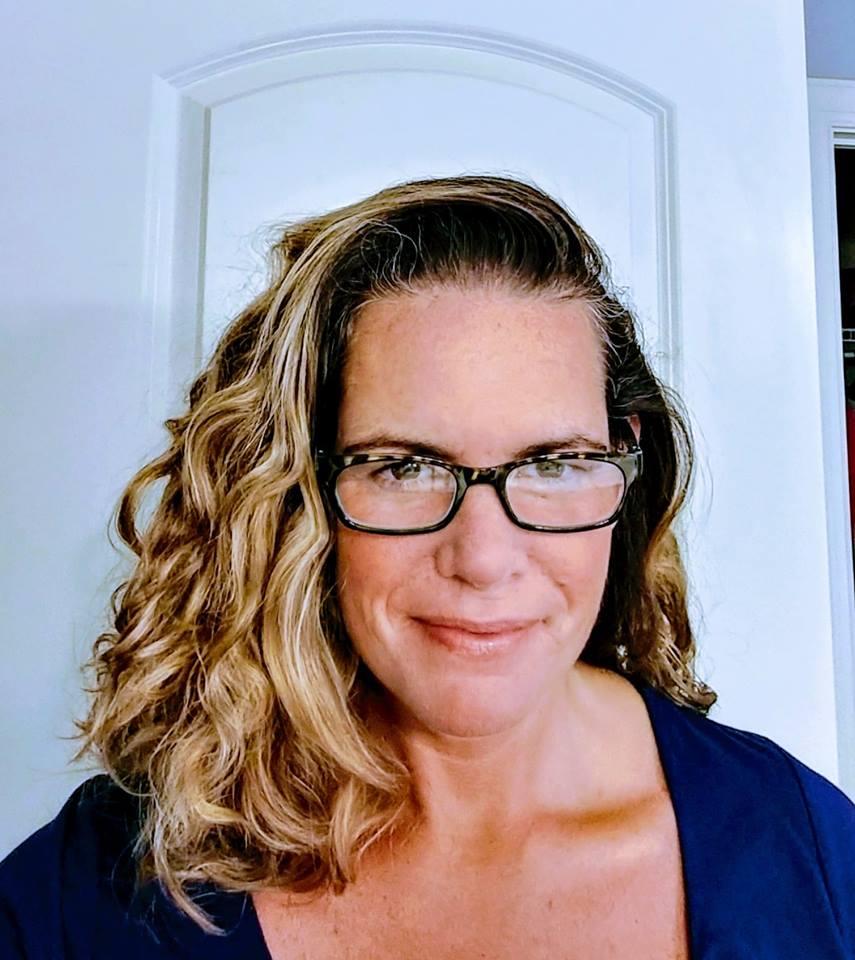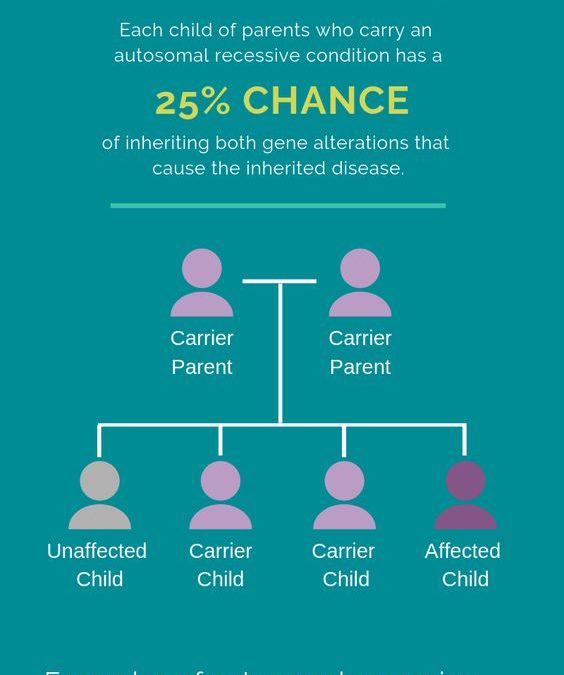Autosomal recessive is a pattern of inheritance. Genetic diseases are caused by changes, also called mutations or pathogenic variants in genes that cause the gene not to work properly. We inherit two copies of each gene from our parents; one from our mothers and the other from our fathers. Sometimes inheriting one mutation from one parent is enough to cause the disease. For recessive inheritance, a person needs to inherit two mutations (i.e. one from each parent) in order to have an increased risk to develop the disease. Autosomal recessive conditions can occur in both men and women.
What are some examples of autosomal recessive diseases?
Autosomal recessive diseases are more common among certain ethnic groups because the mutation that causes those diseases may have originated in a particular area of the world, making it more common among people of that ethnic group. Among white Europeans, for example, cystic fibrosis is more common among those who descend from Northern Europe and Smith-Lemli-Opitz syndrome more common among those who descend from Central Europe. Spinal muscular atrophy and Tay Sachs disease is more common among individuals from Ashkenazi Jewish ancestry, which can be traced back to Jews that settled in Central Europe. The most common inherited blood disorder in the United States is sickle cell disease, which is most common among people with ancestors from African, Mediterranean and Central or South American countries.
What are “carriers”?
In autosomal recessive inheritance, a carrier is someone who has a mutation in one copy of a gene that causes it not to work properly. However, they typically do not manifest any symptoms of the disease because their other copy of the gene compensates for the non-working copy.
Because carriers aren’t affected by symptoms of the disease, recessive mutations can be unknowingly passed down from generation to generation until someone in the family either
- has a child affected with the disease, or
- has a positive result on a test that screens for carriers
What is the chance a carrier can have an affected child?
 Generally, both parents have to be carriers of a mutation within the same gene in order to have an increased risk to have a child affected by the disease. Carrier-parents have a 25% risk (or 1 in 4 chance) to have a child with the disease.
Generally, both parents have to be carriers of a mutation within the same gene in order to have an increased risk to have a child affected by the disease. Carrier-parents have a 25% risk (or 1 in 4 chance) to have a child with the disease.
Alternatively, there is a 50% chance (or 1 in 2) that the child will inherit just one mutation from one parent and also be a carrier like his/her parents with an increased risk to have an affected child. Or, the parents could pass on both working copies of the gene. In this scenario, the child will neither be affected nor have an increased risk to have an affected child.
Can preimplantation genetic testing be done for autosomal recessive diseases?
Preimplantation genetic testing (PGT) is commonly offered to parents who are known carriers for the same autosomal recessive disease. Cystic fibrosis was the first single-gene disorder where PGT was successfully performed. While the exact number of IVF cycles using the technology is unknown, the list of diseases, including many autosomal recessive diseases, where PGT has been successfully performed continues to grow. Many factors play a role in whether or not parents decide to pursue PGT. Meeting with a genetic counselor before you become pregnant is the best next step to explore your risk to have a child with an autosomal recessive disease and discuss the option of PGT if you are at risk.

Leslie is a board-certified clinical genetic counselor and former Program Manager for the preimplantation genetic testing (PGT) program of the ORM Genomics team and former Project Manager for SharingHealthyGenes.com. She completed her Bachelor’s degree at DePauw University and her Master’s degree in Genetic Counseling at the University of Texas Graduate School of Biomedical Sciences at Houston. Since graduating in 2000, she has worked as a clinical genetic counselor in several specialties including prenatal, pediatric and cancer genetics and has been very involved with the National Society of Genetic Counselors.
